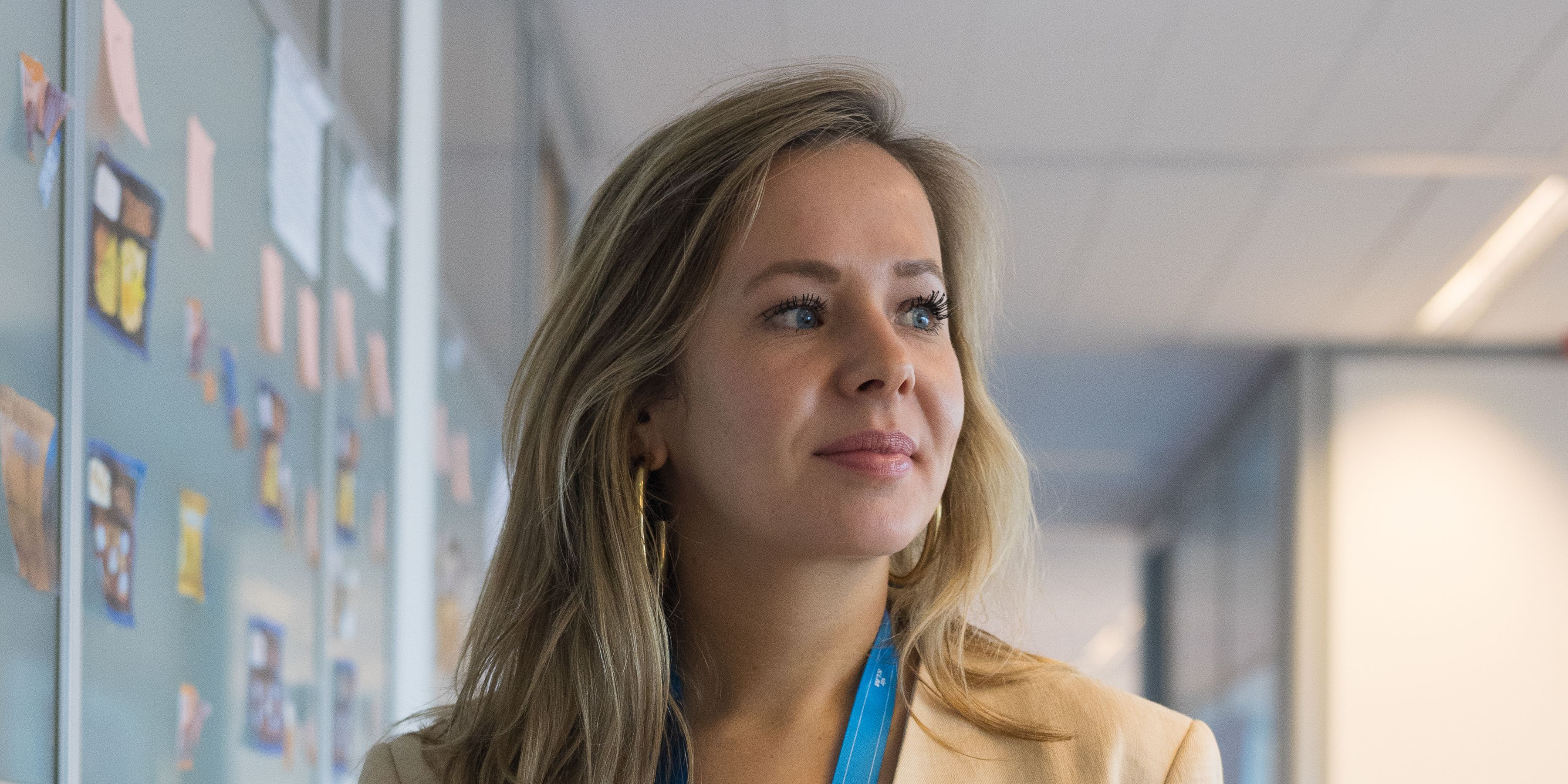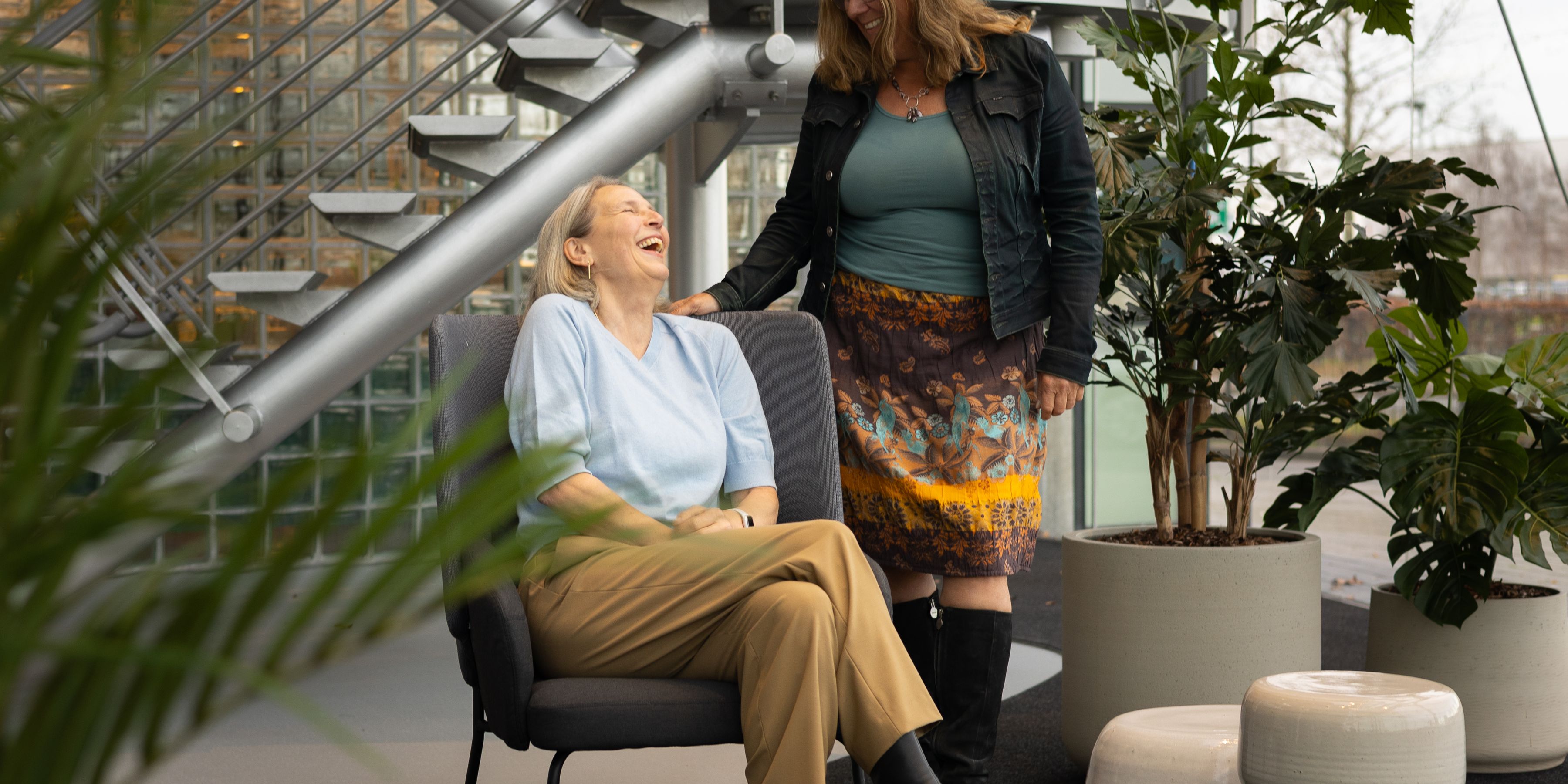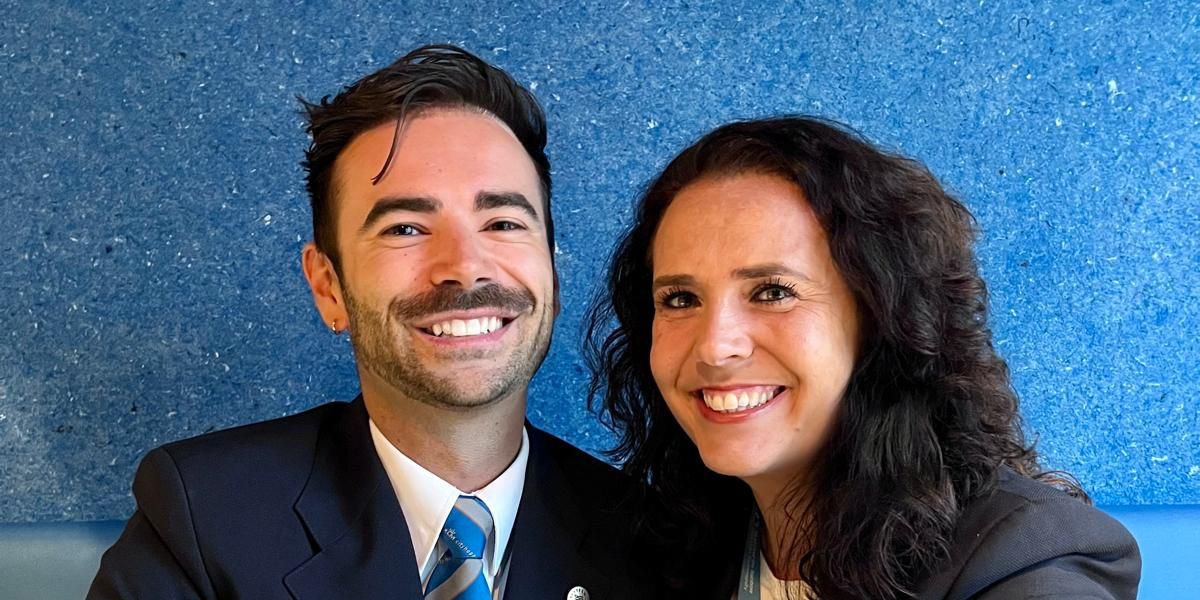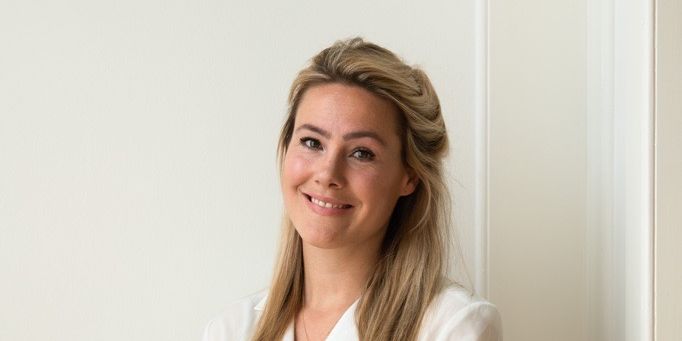Hydrogen: the future of aviation
Flying on hydrogen: it sounds like science fiction, but for Jos it’s everyday work
As part of KLM’s Zero Emission Aviation team, Jos works daily on developments that will transform aviation. “We are on the verge of a new era. KLM wants to be at the forefront.”
Jos joined KLM three years ago after a diverse career in strategy, innovation, and sustainability. Before that, he saw different corners of the world, from Ivory Coast to Australia, working on innovation projects with social and ecological impact. “I enjoy working in uncharted territory, both literally and figuratively,” he says. “If there are no frameworks yet and you get to build everything from scratch, that’s when I’m truly in my element.”
Change from within
Why did sustainability enthusiast Jos choose aviation—a sector often seen as polluting?
You can stand on the sidelines and shout that flying is bad, but I’d rather be part of the solution.Jos
I believe you make the biggest impact when you’re close to the challenges. People want to travel, that’s just a fact. And we know flying brings us wonderful things: the ability to discover the world and connect with each other. So the real question is: how can we keep doing that in a sustainable way?”
That philosophy fits perfectly with KLM’s approach: always looking for what’s possible. As one of the few major airlines worldwide, KLM has a dedicated team working full-time on zero emission aviation. “That’s why we get a lot of positive reactions from abroad,” Jos says. “Others see how seriously we take this, and it motivates them to take steps as well.”
Hydrogen as a game changer
Why hydrogen? “It can solve many of our current problems,” Jos explains. “Think about CO2 emissions, nitrogen oxides, and particulate matter. In a nutshell, it works like this: in a fuel cell, we let hydrogen react with oxygen, which generates electricity for electric motors.” Several aircraft manufacturers are now developing hydrogen planes, and the expectation is that we’ll see the first models on the market as early as 2028. But Jos is realistic about the challenges: “Hydrogen takes up four times more space than kerosene, so you have to sacrifice seats and range. Plus, we still need to train people, set up regulations, and develop infrastructure. In short: there’s work to be done.”
Dress rehearsal
One of the highlights of Jos’s work: preparing KLM’s first demonstration flight with a hydrogen aircraft. “We’re going to be the first major airline to perform such a flight in an operational setting, from one airport to another—with all the processes that entails.”
This isn’t a stunt for the outside world, Jos emphasizes. “We mainly want to learn from it. For a successful flight, we have to answer questions like: where will we refuel, how do we ensure safety, what training do our people need? That way, we can truly prepare ourselves for regular hydrogen flights, so that in the future it fits seamlessly into our operations.”
All noses in the same direction
Is Jos’s work mainly about technology? “Actually, it’s mostly indirect. The aircraft manufacturers develop the technology; our team tries to prepare the entire ecosystem for hydrogen flight. For example, we tell airports: when we start using hydrogen planes, we’ll need the infrastructure for that. Will you provide it? Everyone has to participate; otherwise, it won’t happen.”
Internally, we prepare our people for innovative technologies: we try to make people aware and enthusiastic, so it really becomes part of KLM’s culture. Externally, we look for allies—other carriers, governments, aircraft manufacturers. That connecting role is crucial, because the challenge is so big. “You can’t solve this as an airline alone. We need partners who are just as motivated as we are. Fortunately, we’re finding more and more of them.”
Dream: more sustainable and accessible
That we can welcome back the passengers who now consciously choose not to fly because of emissions—with a more sustainable alternative.Jos
On top of that, I hope that flying on hydrogen will be affordable. That way, we keep the world accessible to everyone. I truly believe the world becomes a better place when we connect more. In my experience, travel makes you more open-minded and understanding. The world could really use that.”
Outlook on tomorrow
“The strength of our team? Diversity. We have an aerospace engineer, someone from the public sector, a former pilot. Together, we have all the skills and knowledge needed to make this program a success.” Jos’s work is just as varied, he says. “One moment I’m working on safety assessments, the next I’m on a call with airports or lessors.” For him, working on the aviation of tomorrow is a dream job. “KLM has been doing this for 105 years: thinking about the future and our role in it. That’s why we still exist. I’m proud to contribute to that legacy.”



